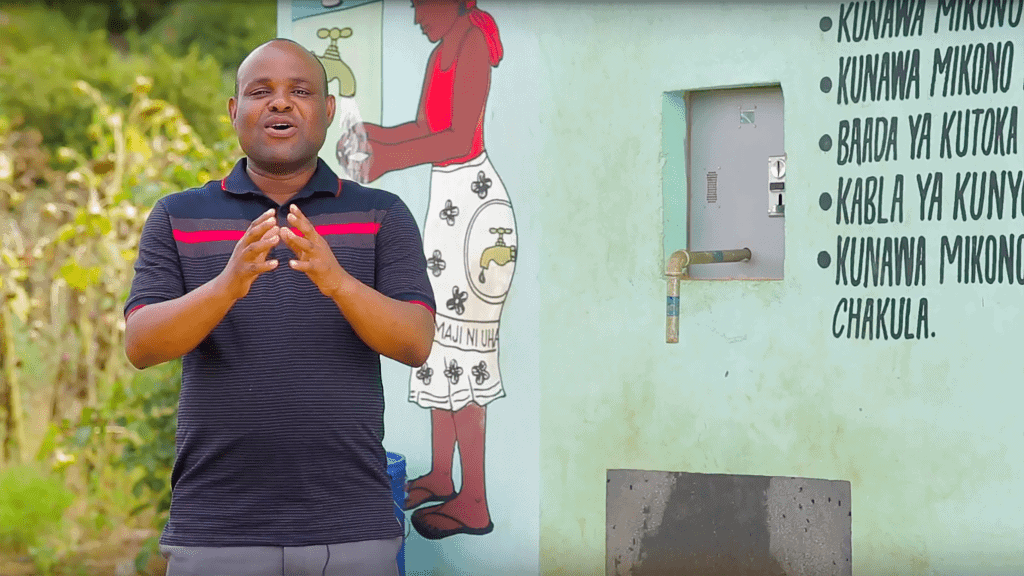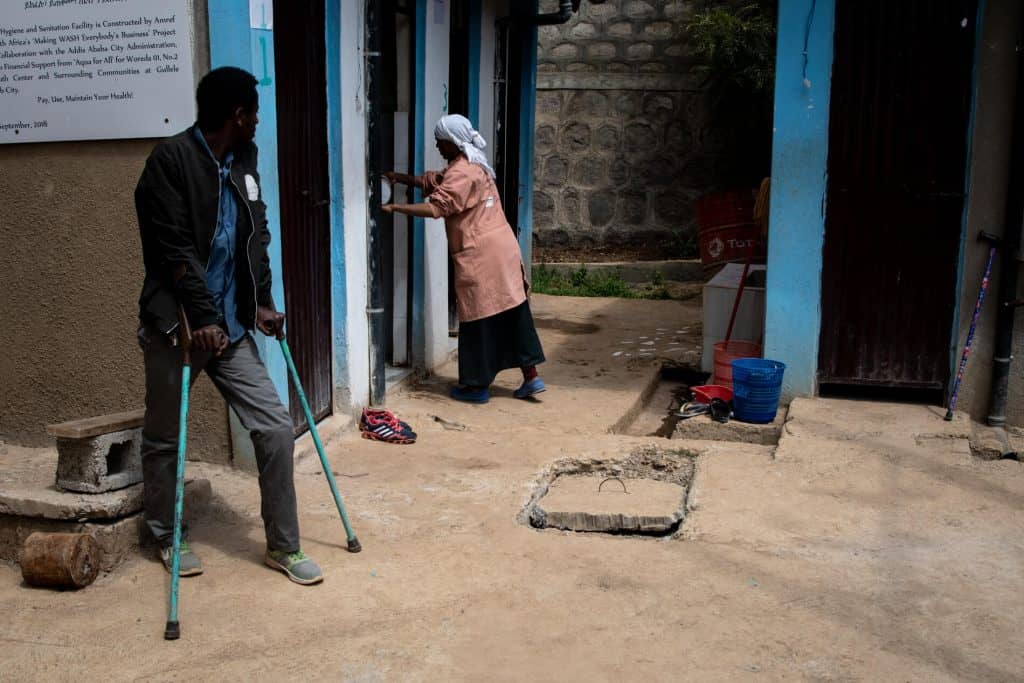THIS IS HOW WE OPERATE
Currently active water projects are displayed on the map. Look for made blue icons on the map.
We choose to operate in areas coping with permanent water stress and within relatively stable (political) environments.
Together with local partners we are working on lasting change.
METER READING
Our total impact realized since the start of made blue in 2014 is displayed below. We register the number of people given permanent access to clean water and hygiene, multiplied by a minimal daily use of 20 litres of water per person, according to United Nations reports.
This is our meter reading
20533583248
LITER
We have already achieved so much clean drinking water in developing countries and that has more impact than you think:
Women have time to work again and children can go to school, giving them a better chance of a better life later. People no longer have to cut down trees to boil dirty water and it is no longer necessary to buy disposable bottles.
281282
people got access
143735
tons of CO2 saved
205336
tons of plastic waste prevented
3080037
trees saved
We promise access to clean water and hygiene for at least 10 years after completing a water project, of course working hard to make our impact last even longer. We’re fair about potential risks involved. Therefore we’re aiming at reaching more people than being targetted, making sure reported impact is even bigger in real life.
Each project is checked before and during execution. We receive help in this from Aqua for All, the agency that has also been checking the water projects of the Dutch government for many years.
LASTING CHANGE
Unfortunately, many well-intentioned initiatives did not live up to expectations. In sub-Sahara Africa it is estimated that about 50% of water pumps once installed by charities are no longer functioning. That is a tragedy! Obviously, that’s not how it should be at all and that is why we’re very serious about making impact last.
Therefore every project we engage in is thoroughly screened and fitted with a business model and ownership structure guaranteeing operation and maintenance for at least 10 years to come. This often means that users pay a small contribution for the water fetched at the facility, funds that are being used as savings for future repairs or even expansion.
That results in lasting change and a more sustainable society. The sustainability factor is even bigger as direct access to clean water often also means no longer having to boil polluted surface water over open fire or having to buy packaged water.
Of course sustainability is key in our own operation as well, developing solutions that contribute to lowering water footprints of products and services of the companies supporting our work.

Innovation
As there’s always room for improvement we also invest time and resources into optimizing the way we work towards access to clean water and hygiene for all. For example by running a pilot project with a water vending machine in Tanzania.
We’re aiming at challenging local communities not only taking ownership, but also coming up with new ideas and approaches towards access to clean water and hygiene for all. That is a conscious policy.
In the end we work towards the clear objective to make as much impact as possible with every Euro being invested.
knock-on effect
Water projects are fitted with a business model and ownership structure. This often means that users pay a small contribution for the water fetched at the facility, funds that are being used as savings for future repairs.
We often see that local communities are able to create additional water supplies on their own initiative based on modest income. Water points also attract other entrepreneurs. This creates a knock-on effect that has much more impact.

Active projects
These are currently ongoing projects enabling access to clean water and hygiene for all.
Water for health centres in Sierra Leone
We are helping young and expectant mothers and their children live healthy and safe lives by investing in health center facilities in Sierra Leone.
Read moreLocal innovation in Uganda
Together with the local population, we devise water solutions that work well for them. Women are central to this.
Read moreMadzi for Malawi
In Malawi, over than 7 million people lack access to clean water. This has resulted in major health risks and hinders the development of many (young) inhabitants. By building and repairing water…
Read moreFrom water to work in Nepal
In Nepal we restore water supplies and teach women to manage them as a business.
Read more“
We often see that local communities are able to create additional water supplies on their own initiative based on modest income. Water points also attract other entrepreneurs. This creates a knock-on effect that has much more impact.
Frank van der Tang, co-founder Made Blue
”
Latest updates
Let’s get to work in Malawi
Over 30% of the population in Malawi lacks access to clean drinking water. That’s over 7 million people! We hope to make a slight change to this problem with our new project Madzi for Malawi. Here is…
Read moreBushra’s personal story
We’ve supported the Max Tapwater project to realise 80 water networks in different locations in Bangladesh since 2022. Aside from direct access to clean water and the creation of jobs, the project…
Read moreAn update on construction works in Nepal
We’ve made major progress in Nepal over the past few months. We’ve constructed six new water points and restored two existing ones, giving 1,950 people direct access to clean water.
Read moreFinishing up in India
In India, we have constructed 10 borewells in a short time. This has given the many residents of remote villages much more time and freedom.
Read moreFinished projects
We recently successfully completed these projects.
Clean drinking water for minorities in Vietnam
Finally access to clean drinking water for a disadvantaged minority group in Vietnam, the Muong, in collaboration with World Vision.
Read moreSaid’s water vending machine
Innovation and entrepreneurship in clean drinking water in Tanzania through the smart Water Vending Machine in collaboration with Simavi.
Read moreMaking water everybody’s business
An enterprising water project in Ethiopia lasting five years in the slums of large cities such as the capital Addis Ababa.
Read moreWater for villages in India
1,165 families in the Kadapa District in India will have direct access to water thanks to 10 new borewells.
Read more